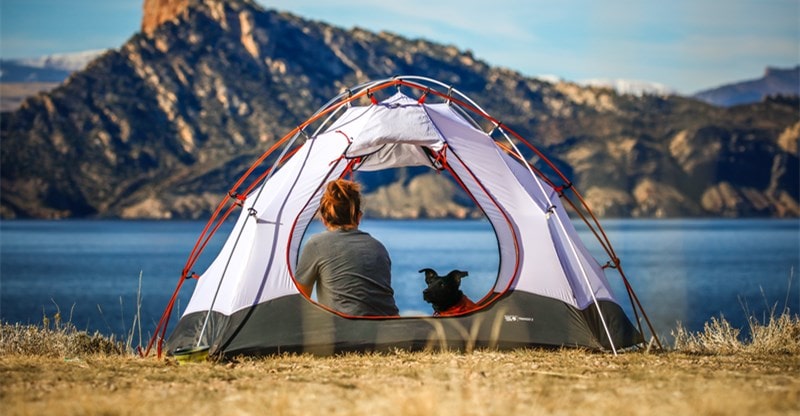Preventative Safety Measures to Take While Camping
An estimated 40 million people go camping in the U.S. each year. Camping can look different for everyone. Some go on solo treks to experience the beauty of nature in solitude. For others, it’s a family event. Some people utilize tents such as 10 person camping tents, while others go camping in RVs.
Whatever your preferred method might be, there is one thing everyone can agree on when it comes to camping: It’s extremely important to be safe.
Nature is often unpredictable. Preparing yourself for the unexpected ahead of time and putting some preventative safety measures in place can help to keep you and your loved ones from getting injured or sick while you’re experiencing the great outdoors.
Preparing for the Unexpected
Again, nature is unpredictable. Disasters do happen, and while you may not be able to prevent them, you can prepare yourself for them. Depending on where you’re camping, you could be at risk of experiencing anything from tornadoes to hurricanes, or from mudslides to flooding.
In order to be fully prepared for the unexpected, you’ll have to practice some survival techniques. That starts with having the right gear and equipment with you on your trip. You should always make sure you have the following essentials in your survival kit when you’re camping:
• A first aid kit
• Enough food for 3-4 days
• Water
• A blanket
• A radio
• A whistle
In addition to having the right supplies, you can make safe choices ahead of time when it comes to your environment. Follow local weather reports for a few days before you head out on your trip.
If you can avoid a disaster altogether, that’s certainly better than trying to stay safe in the thick of one. You might not have cell service in your camping area, which is why it’s so important to bring a radio with you in order to get the latest, up-to-date weather reports for your specific area. If you’re really far out in the wilderness, consider carrying a GPS locator.
It’s also a good idea to make sure everyone in your party has a radio of their own, or a walkie-talkie. If you happen to get separated during a disaster, it makes it much easier to stay in constant communication. You can ensure everyone stays safe and knows what to do if a disaster should strike. Having a radio can also give you the opportunity to call for help if you’re in danger.
Making Smart & Safe Choices
Though there are some things you can’t control while you’re camping, there are other things that are a matter of choice. For example, being active is a big part of the camping experience. Some of the most popular physical activities include:
• Hiking
• Fishing
• Running
• Swimming
• Climbing
• Kayaking
• Biking
It’s important to prepare yourself for the physical activities you’re taking part in. For example, if you’re going kayaking, be sure to bring life jackets along (especially for children!). If you’re going swimming, never go alone. If you’re going biking, wear helmets and proper protective gear.
Whatever activities you choose, you should also make yourself aware of your surroundings and the creatures that you could be sharing your space with.
Many hiking trails have cleared-off paths, but some of the grasses, trees, and bushes that border those baths can be home to everything from spiders to ticks. You can reduce your risk of tick bites by wearing long, protective clothing, using insect repellent, and tucking your pants into your socks.
After a long day of staying physically active, there might be nothing that sounds better than a cold drink around the fire. Alcohol is often a part of camping, and it’s a great way to relax and have fun with your friends.
But, it’s also another safety choice. Alcohol can have negative effects on the mind and body when it’s consumed excessively. It can cause fluctuations in your mood, affect your motor skills, and can even contribute to acid reflux and GERD. So, while there’s nothing wrong with having a drink or two around the fire, be sure to limit your intake to keep yourself (and others) safe.
Creating a Safe Campsite
One of the things you’re most in control of when you go camping is your campsite itself. You get to decide how to set it up, whether you’re pitching a tent or putting together a relaxing area in front of your RV.
Creating a safe campsite starts with finding the right location. If you’re camping on a designated campground, you probably don’t have to worry much about a ‘bad’ spot. But, there are a few things to keep in mind when you’re considering the location. It’s best to choose an area that’s flat and not too bumpy.
You also don’t want to disturb any wildlife or vegetation with your campsite. So be respectful of your surroundings. If you notice any animals in high-traffic areas that could either be in danger or be a threat, contact a park ranger or manager at the campground.
Once you’ve selected the perfect spot, you’ll want to get a campfire going. Fire safety is incredibly important when you’re camping. Almost 85% of wildfires in the U.S. are caused by humans. They are typically the result of neglected fires or fires that weren’t built properly.
Thankfully, there are several steps you can take that will help to ensure your campfire is safe:
• Limiting the size of the fire
• Owning a fire shovel
• Never leaving the fire unattended
When you’re ready to leave your campsite, plan to fully extinguish your fire at least 30 minutes before you go. Use water to extinguish the hot coals, and then give them a stir with a fire shovel. Wait for all of the steam to evaporate.
If there are any ‘hissing’ sounds or it appears that some areas are still burning, repeat the process with water. Some campgrounds may have rules on where you can dispose of your ash. If not, carry it far into the woods away from other campers and trails to get rid of it.
When you’re going camping, you’re probably already planning ahead for what you should bring, where you want to go, and what you want to do. By adding a few of these preventative safety tips to your checklist, you can make sure you and your crew stay safe and are able to enjoy the camping experience to the fullest.



